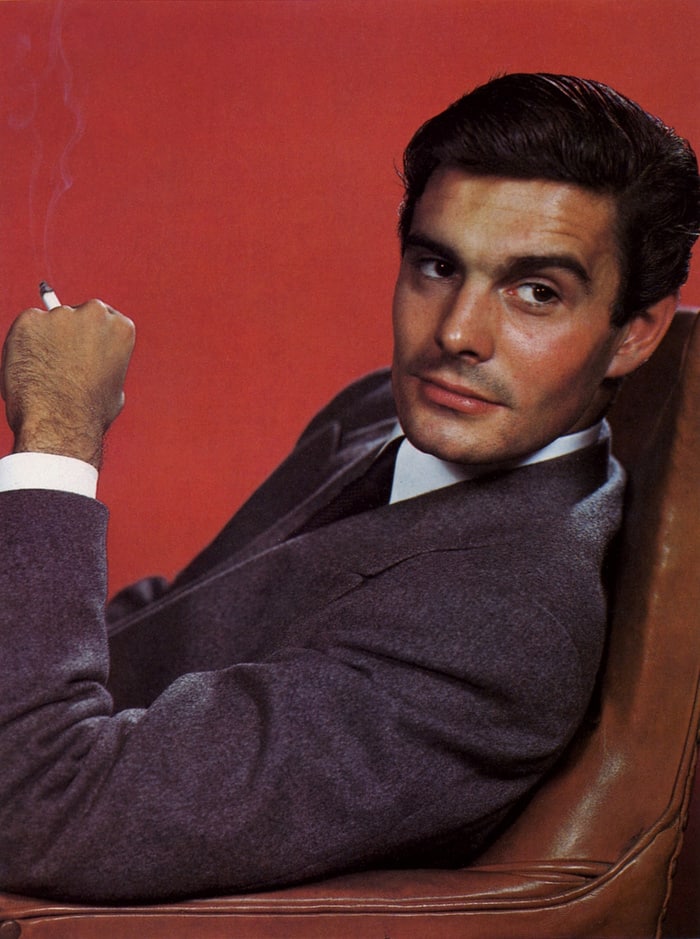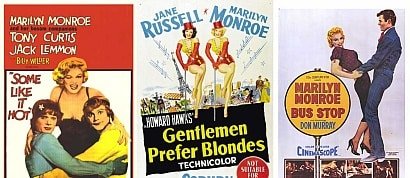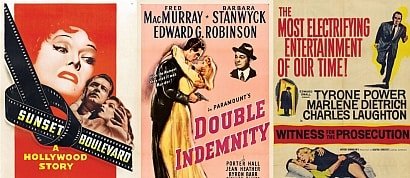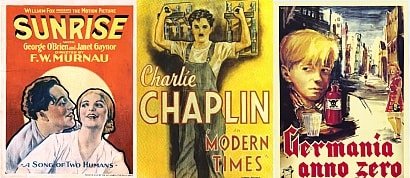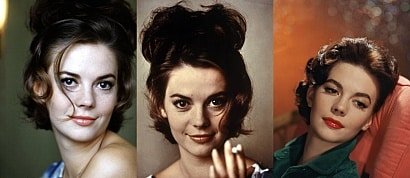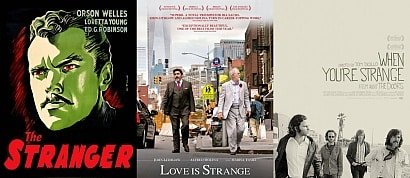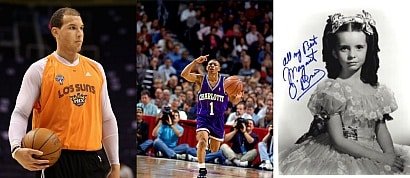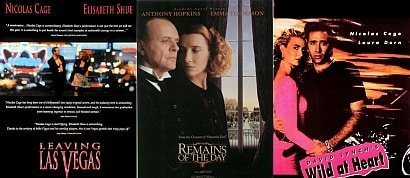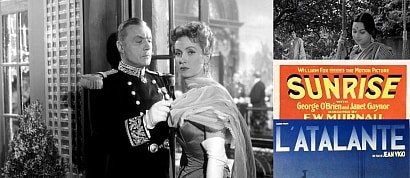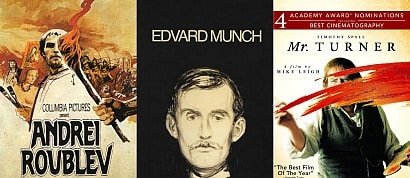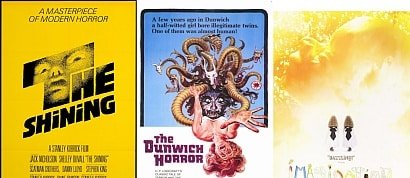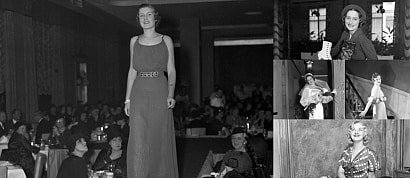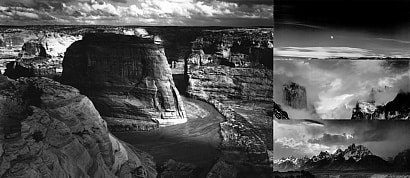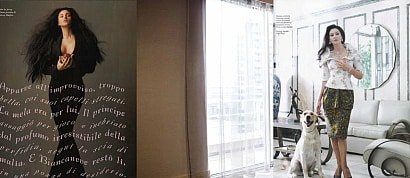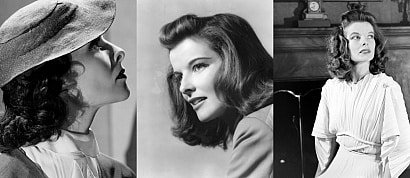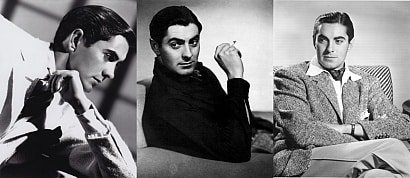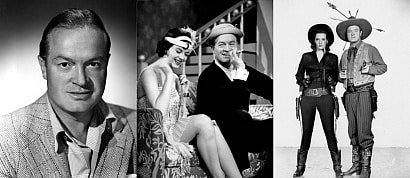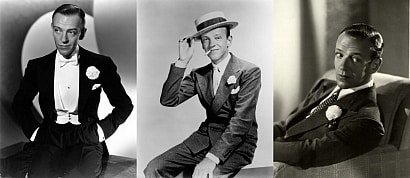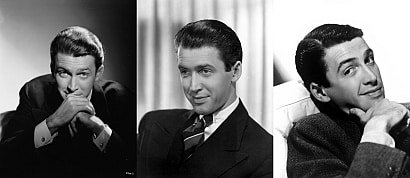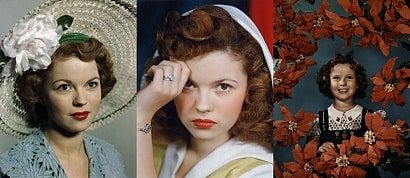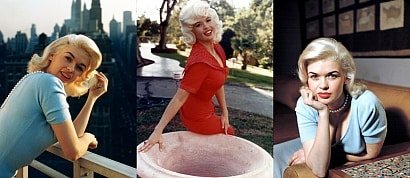Happy Birthday! - Louis Jourdan
Born: June 19 1921 in Marseille, Bouches-du-Rhône, France
Celebrated age: 92
A classic French intellectual, character actor in a leading man's body, and potentially one of the best directors Hollywood never had, Louis Jourdan's life has been the antithesis of the frivolous playboy roles in which he was so often cast.
A century before mass tourism began, many hotels had already started springing up on the shores of the Mediterranean, aristocratic Continentals having been lured there by the gentle climate and scented air. As a hotelier, it was the business of Louis Jourdan's father to offer hospitality to this demanding elite.
But following the Russian Revolution and World War I, political and economic changes in Europe brought a dramatic end to the lifestyle of many who had vacationed on the French Riviera. Henry and Yvonne Jourdan Gendre may have wondered if their first son Louis was being born into a dying industry. In fact, they left the country at this point, and for a time, the family was attached to hotels in London and Istanbul before returning to southern France.
There, fortunately, a whole new clientele discovered the paradise where Alps meet the sea. They were the arty, fascinating and wealthy Americans - characters who might have stepped out of the pages of a Scott Fitzgerald novel (a number actually did) - from the celebrated ones who built their own homes on rocky cliffs to the less obtrusive, but equally interesting men and women who enjoyed their abundant leisure time in the hotels that graced the Côte d'Azur.
Along with the remaining Continentals, these were the individuals who created a panorama of international glamour and sophistication that was the theatre set before Louis Jourdan - and the first stage on which he shone himself - growing up in Cannes and Nice in the 1920s and 1930s.
A Fascination for People Watching
Freely mixing with these American guests (who were surely as charmed by the boy as their children, grandchildren, great-grandchildren - into infinity -were by the man), young Loulou, as he was affectionately known, acquired a wider perspective than any ordinary upbringing might have offered, and is even quoted as saying that he heard a music in their speech.
(Quite ironic, when one considers how beautiful he's made the English language sound with his own melodious way of speaking it. Though a gift in the eyes of most, his lilting accent also proved to be quite an obstacle in his career, something which prevented him from getting the sort of parts he preferred to play.)
It was in this setting that, as a boy, he first developed his interest in food and its preparation via the hotel kitchens. But his appetites went beyond fine cuisine.
To one with an inquisitive mind, the diverse and changing clientele offered a picture window on the whole world, and as such, it was probably in his earliest years that Louis Jourdan began to develop his life-long interest in observing and analyzing human behavior.
And what behavior there was to observe! During his youth, he met some of the greatest artists of the century - Picasso, Matisse, Poulenc and so many other inspiring figures who channeled his tastes and interests growing up.
However, the guests and substantial travel provided only supplementary knowledge, as the future actor was beautifully educated in a formal sense as well, leading to a deep-rooted appreciation of music, literature, philosophy and ethics that became a second skin.
One could easily imagine him having become an academic, quite comfortable standing behind a professor's lectern. But despite being well prepared to begin at the university, the only profession Louis Jourdan wanted to pursue was acting. As far back as he can recall, “there has never been life without the notion of acting, playing, make believe.”
Thus, followed by his brother Pierre, he traveled to Paris, where he was accepted into the prestigious École Dramatique, studying under René Simon.
It was there in 1938 that he met Marc Allégret who took the aspiring actor on as an apprentice, making it possible to learn every aspect of cinema under the distinguished director's guidance. That summer, Louis Jourdan served as an assistant camera operator on the film “Entrée des Artistes” (English title “The Curtain Rises”), which was shot at multiple locations.
The Innate Elegance
Despite the minimal visibility of such a position, he nevertheless caught the eye of the film's star Louis Jouvet, who was amply impressed by the young crew member's charm and elegance.
Incredible! Here was someone still in his teens, dressed in working clothes, concentrating on his camera equipment rather than in any position to draw attention, and nevertheless the renowned actor perceived That Special Something - the classic grace and style which are Louis Jourdan's hallmark - and that propelled him to Hollywood a decade later.
With such “star quality,” Louis Jouvet believed that this technician should be working in front of, rather than behind the camera.
The Almost Making of a Star
The great director was in full agreement about his protégé, and Louis Jourdan was on his way back to Nice, given his first cinema role in Marc Allegret's next vehicle, “Le Corsaire” (“The Pirate”), one that was already causing excitement and anticipation prior to going into production due to the fact that Charles Boyer, long since an international leading man, was returning from America to star in the picture.
While the rapid move forward was a most enthralling career development, the times were foreboding, with war clearly imminent. “Le Corsaire” had only been shooting for a few weeks when German troops marched into Poland, and cast members were called to national service. Production ceased with only some 30 minutes of random footage left to posterity.
But the five weeks working on “Le Corsaire” were not merely the stuff of forgotten memories for Louis Jourdan. The acquaintance he made with Charles Boyer turned into a life-long friendship (and even business partnership) which lasted until the legendary actor's death in 1978.
And there was something else. A photographer, Raymond Voinquel, was active on the set, taking pictures which documented the never-finished movie. His iconic images of Louis Jourdan from the set were published on the back cover of France's leading cinema magazine the following year - and continue to be still today in the age of the internet. With that kind of impact, it's highly likely that had the film been completed and released, it well might have made Louis Jourdan an overnight star.
Nevertheless, despite the setback, it wasn't long before Julien Duvivier had cast him - and brother Pierre - in the monumental “Untel Père et Fils” which began filming in the last month of the decade.
Louis Jourdan's first complete motion picture was “Untel Père et Fils” (AKA “Immortal France”). Finished in June 1940, the film became caught up in international events, and wasn't released until three years later (in the US - and in France, not until after the end of World War II).
Moreover, as with the photograph from “Le Corsaire” identified as his brother when prominently published on the back cover of the French film magazine Cinemonde in April 1940, the credit for Louis Jourdan's part as Christian (the clean-cut young doctor about to marry as war threatens at the end of “Untel Père et Fils”) was erroneously given to Pierre Jourdan (who actually played Christian's brother Jean).
May 1940 saw France experience an awesome and numbing shock to its national psyche when the Nazis seized control of the country, subjecting all its citizens to a new Reign of Terror.
Another Unreleased Film
At the time, shooting of “Untel Père et Fils” was just concluding, and Louis Jourdan was about to start another movie that was never realized, as well as getting a role in Marc Allégret's “Parade en 7 Nuits,” his first featured part. The picture, filmed in both occupied and “free” France, was a series of vignettes, in which Louis Jourdan was the center of the first, playing a star-crossed circus performer. However, release of this film was also delayed, due to the fact that final scenes were not shot until March 1941.
A Motion Picture that will Reach Cinemas
But though not yet seen by the public, Marcel L'Herbier was ready to give the young actor a high-profile part in his next film, a very special project for the director, and in the late summer, Louis Jourdan traveled to Rome to begin his fourth picture, “La Comédie du Bonheur.” The role was one of diversity that enabled him to show off strong acting talent, and was his first to get into the cinema houses, though not those of France, but only Italy (at the end of the year).
A Starring Part
On his return to France, he began his first leading role as the romantic hero of “Le Premier Rendez-vous,” the Henri Decoin movie which began shooting in Paris late in the year. A light-hearted but charming piece, the film - his first to be seen by French cinema audiences (the following August) - guaranteed major parts from then on.
By the time he finished shooting this picture in early 1941, the French movie industry was under heavy German censorship, and, as Louis Jourdan has said, “art cannot exist without freedom.” His brother Pierre, who was pursuing a parallel - if more minor - career in the cinema was of similar mind, and their solution was to return to the stage, and where possible, to run a zig-zag course of appearing in politically neutral films.
The Lead in a Classic Story
The French public finally saw Louis Jourdan for the first time at the end of the summer in “Premier Rendez-vous” and “Parade in 7 Nuits.” In the autumn of 1941 Marc Allégret managed to put together a new production in Vichy France, and invited Louis Jourdan to take the starring part in “L'Arlésienne.” The tragic role offered more scope than previous ones, and the sadness which hangs over the picture was a mirror to the actors' own emotions, traumatized as all French men and women, trying to come to terms with their country's violent occupation.
At the beginning of 1942, Louis Jourdan worked on another Allégret film in Nice, “La Belle Aventure,” his first with Claude Dauphin (who would join him a decade later in owning and starring in the TV series “Paris Precinct”). Though a purely romantic role, it kept him before the cameras into the Spring.
In the summer “La Comédie du Bonheur” reached French cinemas, and Louis Jourdan was at last on his way to becoming a star.
An Almost Masterpiece
The following month he began another film with Claude Dauphin and Marc Allégret, “Felice Nanteul,” again playing a love interest. He and the picture might nevertheless have prospered, were it not for release timing. Its banning due to Claude Dauphin's participation in the French Liberation Forces meant that the film about two men in love with an actress came out after “Enfants du Paradis” - though filmed before - and being on the same theme as the classic, “Felice Nanteul” appeared to be merely a spinoff rather than a landmark in itself.
During filming, “L'Arlésienne” was released, and Louis Jourdan was quickly becoming known across France. But furthering a career was the last thing on any actor's mind, as in November 1942, the myth of a Free France was brought to an end, and Germany took official control of the entire country.
La Bohème Without Singing
Marcel L'Herbier, who was doing what he could to keep French technicians and actors employed, was able to begin a new project in Italy at the end of the year, a non-musical version of La Bohème with Louis Jourdan in the lead, but “La Vie de Bohème” was not released until after the War ended.
Filming of Bohème continued into 1943, during which Louis Jourdan's second movie was released in the US, that first completed film, “Untel Père et Fils.”
In the Spring he began what almost seemed like the end of his film career, working with Marc Allégret in Nice on “Les Petites du Quai aux Fleurs,” another purely romantic role, but one which was at least released in a timely manner the following May.
Drawing the Line
To their credit, the Jourdan brothers had managed to make nearly twenty films between them without ever appearing in any vehicle they couldn't be proud of as Frenchmen. Not a small accomplishment considering that the German occupiers sought to inject Nazi propaganda into all media. But a time came when making non-political pictures to bring a little escape from their countrymen's despair was too passive a reaction to the Occupation.
The Resistance
After “Les Petites du Quai aux Fleurs” was finished, the Germans demanded that Louis Jourdan participate in propaganda films. His refusal was met by detention and a period of hard labor.
However, he managed to break away from the work gang, and fled back to Cannes, only to see his father arrested by the German authorities. A second daring escape reunited the family who all participated actively in the Resistance. It was through his Underground work in Pierre de Bresse that he became acquainted with and began to court the well-to-do young Parisian Berthe Frédérique, who recalls how immensely impressed she was with his honesty and gravitas when they first met.
Though Louis Jourdan plays down his opposition activities, he was constantly in imminent and life-threatening danger. Involved in the printing and distribution of anti-Nazi material, he also acted as a courier, his quick-wittedness usually getting him past the intense German surveillance, but the time he didn't ended in a horrific experience. As Paris had just been liberated, this difficult incarceration was mercifully brief.
After France was once again free, Louis Jourdan went back to acting, though not in films, but gradually, his unreleased efforts came before the French public, first “La Belle Aventure” in December 1944.
Marriage
On March 11, 1945 he and Mlle. Frédérique were married in Paris, an event he declared to be the happiest day of his life - the statement underpinned by 66 years of wedded life together.
During that year, three more of his movies were released - “Untel Père et Fils,” “Felice Nanteul” and “La Vie Boheme” in April, June and October, and recognition was arriving from more than just France.
A Hollywood Contract
As the legend goes, David O. Selznick spotted Louis Jourdan at the Ritz Carlton in Cannes, and had a look at his film work, then offered him a contract to make movies in the U.S. Immediately after celebrating their first wedding anniversary, Louis Jourdan and his bride - known to everyone as Quique - made their way to America.
California presented a radically different world from the one they'd known, looking after one another's safety and sharing the meager food available in wartime France, but the Jourdans were an immediate social hit in Hollywood, and quickly made a series of deep friendships that would last a lifetime.
Louis Jourdan's first American motion picture was a cherished vehicle David O. Selznick had been wanting to produce since The Paradine Case was published in 1931 (while others were suggesting that the debut part should be as lead in a picture about the life of Rudolf Valentino!)
First American Movie
Everything looked promising with Alfred Hitchcock directing and a part that had substance. However, the behind-the-scenes turmoil created as the picture was constantly being re-written during production in winter of `46-`47 left the director disinterested, and Louis Jourdan's character undeveloped.
About the great director, he said, “Hitchcock knows with mathematical precision exactly what he wants. He has a complete concept for each character before filming begins. If an actor has a problem with this conception, subsequent discussions can become pretty lively! But it should be noted that often Hitchcock accepts the theories of the actor if they are valid and intelligent, and his outbursts are more a matter of passion than anger.”
"The Paradine Case" had almost been a once-off chance for Louis Jourdan to start his Hollywood career as a serious actor instead of being a matinee idol, and the opportunity was lost in confusion.
Letter From An Unknown Woman
Though his next film was one which many people have on their list of all-time favorites, it began a series of productions where his chief role was primarily to appear as a leading lady's lover - decorative characters who were anathema to him. Should we blame this on Joan Fontaine who after seeing Louis Jourdan, couldn't imagine anyone else to play opposite her in the first independent production that she and her husband Bill Dozier were making from the novel Letter From An Unknown Woman?
She wasn't the only one. Everyone wanted to borrow him from Selznick for one project or another after “The Paradine Case” was released in December 1947. (A footnote to the film was the reprising of his performance on Lux Radio Theater in 1949 (playing opposite Joseph Cotton in the Gregory Peck role.)
In only his second American picture, the Hollywood newcomer took that big lead opposite Joan Fontaine (filmed in September and October 1947 and released in 1948), and the Louis Jourdan Persona was born. “Letter From An Unknown Woman,” is not only a picture which seems to improve with time, but one in which people concede that the more they see this film, the more intriguing they find the character he molded - not simply one of a womanizer, but rather, a man as broken by the events of the picture as the woman who loved him.
Following its release, David O. Selznick had the idea of having his new contract player from France to star opposite Jennifer Jones in Romeo and Juliet - both on a stage tour and then on film. A fascinating thought, but one which didn't come to fruition.
However, the two did make a stage appearance together in the summer of 1948 at Gregory Peck's La Jolla Playhouse in “Serena Blandish,” despite the fact that the southern California smog was playing havoc with Louis Jourdan's health. Nevertheless, with things looking so promising, the Jourdans had just bought a home in Beverly Hills - one which quickly became a haven for actors, directors and writers looking for something solid in a world of fluff.
Another part Selznick campaigned for Louis Jourdan to get was in William Wyler's “The Heiress,” but he was unable to convince the director that the fortune hunter role could be changed from an American - as the original of Washington Square - to a European, and consequently, Montgomery Clift was cast.
But perhaps the most exciting prospect from this period that didn't emerge was Greta Garbo's proposed comeback film, La Duchesse de Langelais, for which Louis Jourdan was under serious consideration to play her leading man. With “Letter From An Unknown Woman” as yet unreleased, Joan Fontaine also wanted him to star with her in the next film of the Dozier's production company, “Mayerling.” He was even favored for the prince's role playing opposite Jennifer Jones in the tragedy after the couple had dropped the idea, but this potentially intriguing screenplay wasn't shot for another two decades.
Spoofing Himself
There was a change of pace in Louis Jourdan's next movie, “No Minor Vices,” also released in 1948. Though the surreal comedy did indeed have him “cooing in a woman's ear” (his term for the function he unhappily saw himself fulfilling in too many films), the eccentric character offered scope for satire and spoofing of his Latin Lover type which he did with enough charm to match Lillie Palmer's effortless scene stealing.
While the Romeo and Juliet didn't pan out, Louis Jourdan did play opposite Jennifer Jones again in the winter of '48-'49 in “Madame Bovary,” a firm step towards endless reprising of the unsatisfying cliché parts as Continental lover that would be an ever-present albatross in feature films until, late in his career, the actor would start to play villains.
Unavoidable Persona
However, despite the critical acclaim for his performance in the movie (released in August 1949, the month after he and Mme. Jourdan had acted as witnesses at co-star Jennifer Jones' wedding to David O. Selznick in Italy), Louis Jourdan suddenly found himself off the sound stages for 19 months (save a brief appearance (promoting “Madame Bovary”) in the documentary “25 Years of Motion Picture Leadership.”
He did, however, do a number of radio dramas during the period. In addition to The Paradine Case, a half-hour version of "Letter to an Unknown Woman" for Screen Guild Players and "Camille" for Theater Guild on the Air, both with Joan Fontaine.
But many, many screen properties were considered for him. Bette Davis had hoped to get Louis Jourdan to play opposite her in “Beyond the Forest,” and he was slated to make “The Frenchman and the Bobby Soxer” with Shirley Temple (a follow-up to “The Bachelor and the Bobby Soxer” that luckily was never made) among others.
While he fought the stereotyping with every fiber - being repeatedly suspended by his otherwise friend David O. Selznick - no matter how much a character actor lived inside Louis Jourdan, Hollywood could see him only as a leading man. In a far less serious situation, it was another illustration of his belief that art cannot prosper without freedom, and the limited range he was allowed at the beginning stifled an important contribution to American cinema in the years that followed.
In demand, but for pictures and parts he rejected for their cliché characters, Louis Jourdan had spent most of 1949, and then nine months of 1950 off the sound stages. Loaned out for three of his first four pictures, at the beginning of the decade, he saw his contract with David O. Selznick dwindling away while colleagues were making several films a year. It looked like the breakthrough might be “On the Riviera” with Danny Kaye, but this was not to be.
Louis Jourdan later explained his rebellion against playing Latin lovers, describing such parts as "oo-la-la, conventional, embarrassing characters." Proclaiming his pride in being a Frenchman, he resented “the image people have of the stupid, continental charmer,” adding. “against that type of role, I fight pitilessly."
In May 1950, with great confidence in the young actor, Darryl Zanuck paid a substantial sum to buy Louis Jourdan's contract from Selznick, and a new start beckoned. Eventually, a decision was made that he had come to the US to perform, and might as well end the revolt, and accept parts he didn't particularly want to do until something better came along.
Adventure Films
The first of these compromises took him to Hawaii in Fall 1950 to make “Bird of Paradise,” in (the role of a very uncomplicated Frenchman in Polynesia which he later performed on Lux Radio Theater in December 1951). This was followed by the pirate movie “Anne of the Indies,” which offered a somewhat more developed part. Both were released in 1951.
Debra Paget had co-starred in each of these movies, and two more pictures were proposed for the pair, the first of which was just another adventure piece, “Drums Along the Amazon,” but the second could have proved something special. Unfortunately for both actors, the feature in question, “Les Miserables” had to wait nearly four decades to be filmed.
While the action pictures might not have been professionally satisfying, a little more fun was reprising the playful role of a dazzling eccentric in the radio adaptation of “No Minor Vices” by Screen Director's Playhouse in 1951. (Another interesting foray into radio was the part of Arronnax in the Hallmark Playhouse adaptation of "20,000 Leagues Under the Sea" in November of the same year - the month after a very special occasion in the Jourdans' life.)
Away from the Screen
Indeed, on the personal side, all was much brighter. Happily ensconced in the little bit of France they'd made of their Beverly Hills home, the Jourdans greeted a son, Louis Jr., into the world in October 1951 as his father was quickly becoming the lion of Darryl Zanuck's and Sam Goldwyn's croquet lawns, the most celebrated and dynamic of all the Hollywood players.
Busy Again
Also that year, over a decade after they almost appeared together in “Le Corsaire,” Louis Jourdan infused joie de vivre into “The Happy Time” as Charles Boyer's brother, following which he exited Hollywood to brave the heat of a Spanish summer in period costume to play Boccacio in the lush “Decameron Nights” when a role in Jean Negulesco's “Titanic” didn't pan out.
There was also a unique venture into television at this time, one of the earliest color productions made for TV . Pilot for an anthology series, the Christmas story gave Louis Jourdan a chance to step away from Latin Lover roles to play a bereaved young man trying to find his way back to some balance in his life, clinging to the “String of Blue Beads” of the title.
After a decade away from French sound stages, he returned to Paris during 1952 to make the charming “Rue de l'Estrapade,” a film which no fan should miss for his sparkling performance as a philandering race driver whose wife turns the tables on him.
(His original mission to Paris was to play something quite opposite, a character part in good friend Anatol Litvak's movie “Act of Love,” but the role of a French concentration camp victim was scaled down, and another heavy assignment evaporated, as did the unique opportunity to work with pal Kirk Douglas.)
The Prince Dino Syndrome
Continuing to spend much time in Europe, in 1953 Louis Jourdan filmed another quintessentially stereotype role as the prince in “Three Coins in the Fountain,” but managed to avoid an even more souped-up lover in “The Affairs of Antoine” which fortunately was never made). Regrettable, however, was the scrapping of Katherine Hepburn's plan to make a movie version of “The Millionairess” with him after her run in the Shaw play on Broadway. The pairing could have produced a landmark film.
In the autumn he made a Robert Montgomery Presents adaptation of “Wages of Fear,” a tense drama about truck drivers caught up in a volatile situation, something as against the stereotype as one could get.
As the “Hollywood System” was in its death throes, Louis Jourdan managed an early release from the remainder of his second seven-year studio contract which finally enabled the actor to choose the directions his career would take. His first target was the stage.
Broadway Debut
That October he was signed by Billy Rose for what may well be the crowning achievement of his career - on Broadway in “The Immoralist.” Playing a gay archaeologist who tries marriage to combat his homosexuality, only to be sought after by the house boy (briefly played by James Dean before his first Hollywood film), the compelling performance was lauded on all sides for its depth and subtlety.
At last Louis Jourdan was playing in a truly demanding dramatic role of great complexity, and received the Donaldson Award (predecessor to the Tonis)for Best Actor of the Year in a Broadway Debut Performance.
Unfortunately, “The Immoralist” was something his multitude of fans would never have the chance to see, despite it's credible 1954 run in New York.
Though the intensity of the play was a source of great professional satisfaction, he stated at the time that he found the theatre becoming too realistic, too serious, too deep and forceful. "There is little magic, wonder and illusion," he indicated, proposing, "what we need today is the escape of the old-time theatre, which took us out of ourselves into fantasy, excitement and pleasure."
While a great achievement, “The Immoralist” also had negative repercussions in the form of hate mail that never seemed to end. Social mores of 1950s America were a far cry from the 21st century, and merely to play a homosexual on stage could stigmatize an actor in the worst way.
But his Broadway success was more than an acting triumph. A turning point in Louis Jourdan's career, it proved the inspiration and impetus to take new directions, first to go beyond Hollywood, and pursue his career abroad. With the more diverse acting challenges it offered (and his determination not to accept roles that had him stereotyped), television became the focus of the following two years, and a wide variety of projects in the medium proceeded his next feature.
Unique TV Detective Series
As with the draining "Decameron Nights," the grueling Broadway play took a lot of kilos with it, and when the run was finished, Louis Jourdan returned to France. His object was the television series “Paris Precinct,” 26 episodes filmed from May through October 1958 on location across the City of Light - in English for an American audience, a most unusual venture, with Claude Dauphin as co-star (and co-owner), the two playing Paris detectives.
What they quickly discovered was that it was the guest stars who got all the best parts, the detectives basically repeating the same dreary lines week after week. Already drained from the Broadway play, the seemingly wasted time in Paris proved totally exhausting. However after completing the assignment, Louis Jourdan also managed to make “Warm Clay” for The Elgin Hour, which was screened at the end of the year.
1955 was another demanding one, beginning with a return to Broadway in “Tonight in Samarkand,” following which, on April 3 he appeared with Claude Dauphin on the live drama show “Appointment With Adventure” in “Minus Three Thousand, the same night their detective series ”Paris Precinct debuted.
In addition to appearances on panel and variety shows like “What's My Line” and “Martha Raye” as well as an incursion into advertising for Old Spice, Louis Jourdan played in strong anthology series Studio One in “Passage at Arms,” and took the title role in “The Escape of Mendez-France” on Climax, commenting that, had the story been made as a feature, it would have starred Marlon Brando.
The Swan
In the summer he began filming a romantic, but utterly different role opposite Grace Kelly in “The Swan." The self-confident Man About Town of films like “Letter from an Unknown Woman,” “Madame Bovary” and “Three Coins in the Fountain” was transformed into a shy, bookish professor whose human qualities of dignity and kindness proved even more appealing.
The same year he squeezed in two TV dramas, “Secret of the Bells” on Celebrity Playhouse and “Journey by Moonlight,” both of which aired in January 1956.
His first opportunity to play a real movie villain came that Spring in “Julie,” (a part which Louis Jourdan believed gave him enriched acting scope portraying the psychotic husband). After the filming on location in Carmel, California, it was back to France to make the frothy but much admired “La Mariée est Trop Belle” (AKA "The Bride is Much Too Beautiful" / "Her Bridal Night").
His fencing skills, a mini highlight of "The Swan," were put to the test again in his next assignment in a TV drama called “The Man Who Beat Lupo,” after which he returned to France for shooting of the crime drama “Escapade” (released in 1957).
To complete the 1956 output, in addition to playing himself in the live Playhouse 90 production of “Eloise” on Thanksgiving Day, Louis Jourdan also made a recording of poems by his beloved Baudelaire.
Inventing Champagne
Acknowledged on all sides to be one of the greatest Hollywood musicals, it took lyricist Alan Jay Lerner what seemed to be an eternity to convince his friend that he should play a singing role in "Gigi." Louis Jourdan, countering that his voice was more suited to humming around the house had met a man who wouldn't say no, but Lerner's instincts were proven to be perfect. The performance of Gaston exactly realized Vincinte Minelli's conception that the picture was really about the metamorphosis of the young playboy from a jaded individual to one for whom life became spectacular.
Anyone who can hear him in their head at will - singing, “oh no, overnight there's been a breathless change in you,” would join Lerner's army cheering Louis Jourdan on to sing.
(Certainly the supper clubs of the US were listening, and decided he'd make a terrific headliner. The deluge of offers was bemusing to the star who found it impossible to conceive of himself doing a Las Vegas act, turning them all down flat.)
No Enchanted Evening
Another project he rejected has to leave all Louis Jourdan's fans disappointed. It was the lead in the film version of “South Pacific.” The part seemed made for him, and it's easy to imagine how beautifully he would have executed that last delicate phrasing of “never let her go.” Not to mention that it would have been nice to see a Frenchman - instead of Italians - playing the planter from France.
However, the "Gigi" success did encourage him to do more appearances singing and dancing on television in 1958 and 1959. Without question, the classic film represented an enormous personal success that brought the kind of mega star status that lasts a lifetime.
After making the Oscar-winning musical in Paris and California during the summer and autumn of 1957, Louis Jourdan legally adopted the surname that he and his brother had been using throughout their careers, which was their mother's maiden name.
When a heavy dramatic role on the Paris stage didn't pan out, he flew to Britain where he starred in “Dangerous Exile,” a historical drama, and took a part in General Electric Theater's “The Falling Angel” with another dip into TV variety on “The Dinah Shore Show,” like the immortal musical, all these coming before the public in 1958.
Perhaps more encouraged with what Hollywood had to offer that year, especially since he was now an independent actor, no longer under contract, the globe-trotting Jourdans, who'd kept homes on both US coasts, decided to give up their New York apartment, and keep only the Beverly Hills house in America, a spot the actor called “a little paradise on earth.”
Nevertheless, Louis Jourdan found himself nearing a turning point, more determined than ever to escape the kind of roles he was continually offered. And plentiful they were that summer, including one to be shot in Britain.
When proposed parts opposite Debbie Reynolds in the never-made film “Snob Hill” (and How Good Girls Get Married that turned into “Ask Any Girl”) didn't materialize, in the late spring and summer of 1958, having bi-passed another offer to star in a lighter multiple romance, “A Time for Paris” (an unrealized film to star Shirley MacLaine), Louis Jourdan made an alternative high-gloss movie, another Jean Negulesco film on the single-girls-in-the city theme of "Three Coins in the Fountain," this one an embittered New York take, “The Best of Everything.”
Enjoying the artistic freedom working with Negulesco offered, he made the most of an interesting part, playing a stage director with a callous attitude toward women which not only provided a welcome change of pace from more typical roles, but also a chance to make creative contributions to the screenplay and approach of the film.
As the year concluded, David O. Selznick was trying to lure Louis Jourdan back to working with him again with a tempting vehicle, Tender is the Night, but the picture wasn't made for over a year, and other commitments precluded his taking part.
Hosting
While Kirk Douglas was urging Louis Jourdan to do a western, the projects of 1959 were more of a variety nature, including major productions like his hosting of the musical revues “Accent on Love” and “The Louis Jourdan Special,” as well as being special guest of Shirley MacLaine in a Japan Spectacular edition of The Dinah Shore Show. He also appeared again with Dinah herself and did a Perry Como Show that year. And in addition to being a presenter at the Academy Awards, he was involved in a multi-media advertising campaign for Halo Shampoo.
Their detective series a success on ABC TV, and then in syndication, early in the year, Louis Jourdan teamed up with Claude Dauphin in “Caprice,” a comedy bound for Broadway which included their friend Jean Pierre Aumont who'd put the play together.
(Dauphin liked to tell an anecdote about the three sharing a Paris apartment together as struggling actors .... only he had already made some 30 pictures when Louis Jourdan arrived in the city as a teenage student.)
19th Century France Meets 20th Century USSR
A peak year, Louis Jourdan filmed another musical in the fall of 1959, this one with chum Frank Sinatra in “Can-Can.” The production garnered special attention when its set was scheduled on the itinerary of visiting Soviet Premier Khrushchev. A special performance - in which Louis Jourdan sang - was staged for the celebrated visitor, but Khrushchev was not all smiles, finding the can-can dance which had shocked 19th century France equally outrageous to him in the 20th. For his own part, Louis Jourdan found the remarks disappointing, believing that Khrushchev should not have insulted the hospitality of his hosts.
The visit was a large footnote to the story of "Can-Can," but with its abundance of Cole Porter music, able performances by the stars, and one last chance to hear Louis Jourdan sing in a film, this is a movie to remember.
The success of "The Sound of Music" on KhrushchevBroadway made it a certainty that the show would be made into a film, with Louis Jourdan being first choice for the male lead - but this was another singing part he decided against.
However, when it came to turning down roles, it wasn't only on his own behalf. In 1959 the Jourdans' highly photogenic son was offered a leading part as a diplomat's child with vital evidence in the October edition of the prestigious “DuPont Show of the Month” for its adaptation of the 1948 movie “The Fallen Idol,” but his father could see the harm in growing up as an actor, and rejected the producer's proposal.
It was definitely a progressive decade - if not one totally filled with tense dramatic roles - in which audiences were treated to many sides of Louis Jourdan's talent.
And immediately beckoning were a part in a John Ford picture, Ben Hecht's Brotherhood of Evil with Dina Merrill, a Broadway musical, another Continental Lover part with Ava Gardner (Free For the Season), a film about boxer Georges Carpentier, and one in Britain, “Dr. Jekyl and Mr. Hyde. Though playing the latter part had been a life's ambition, none of these projects happened for him, but another did - his own production company!
Celebrated age: 92
A classic French intellectual, character actor in a leading man's body, and potentially one of the best directors Hollywood never had, Louis Jourdan's life has been the antithesis of the frivolous playboy roles in which he was so often cast.
A century before mass tourism began, many hotels had already started springing up on the shores of the Mediterranean, aristocratic Continentals having been lured there by the gentle climate and scented air. As a hotelier, it was the business of Louis Jourdan's father to offer hospitality to this demanding elite.
But following the Russian Revolution and World War I, political and economic changes in Europe brought a dramatic end to the lifestyle of many who had vacationed on the French Riviera. Henry and Yvonne Jourdan Gendre may have wondered if their first son Louis was being born into a dying industry. In fact, they left the country at this point, and for a time, the family was attached to hotels in London and Istanbul before returning to southern France.
There, fortunately, a whole new clientele discovered the paradise where Alps meet the sea. They were the arty, fascinating and wealthy Americans - characters who might have stepped out of the pages of a Scott Fitzgerald novel (a number actually did) - from the celebrated ones who built their own homes on rocky cliffs to the less obtrusive, but equally interesting men and women who enjoyed their abundant leisure time in the hotels that graced the Côte d'Azur.
Along with the remaining Continentals, these were the individuals who created a panorama of international glamour and sophistication that was the theatre set before Louis Jourdan - and the first stage on which he shone himself - growing up in Cannes and Nice in the 1920s and 1930s.
A Fascination for People Watching
Freely mixing with these American guests (who were surely as charmed by the boy as their children, grandchildren, great-grandchildren - into infinity -were by the man), young Loulou, as he was affectionately known, acquired a wider perspective than any ordinary upbringing might have offered, and is even quoted as saying that he heard a music in their speech.
(Quite ironic, when one considers how beautiful he's made the English language sound with his own melodious way of speaking it. Though a gift in the eyes of most, his lilting accent also proved to be quite an obstacle in his career, something which prevented him from getting the sort of parts he preferred to play.)
It was in this setting that, as a boy, he first developed his interest in food and its preparation via the hotel kitchens. But his appetites went beyond fine cuisine.
To one with an inquisitive mind, the diverse and changing clientele offered a picture window on the whole world, and as such, it was probably in his earliest years that Louis Jourdan began to develop his life-long interest in observing and analyzing human behavior.
And what behavior there was to observe! During his youth, he met some of the greatest artists of the century - Picasso, Matisse, Poulenc and so many other inspiring figures who channeled his tastes and interests growing up.
However, the guests and substantial travel provided only supplementary knowledge, as the future actor was beautifully educated in a formal sense as well, leading to a deep-rooted appreciation of music, literature, philosophy and ethics that became a second skin.
One could easily imagine him having become an academic, quite comfortable standing behind a professor's lectern. But despite being well prepared to begin at the university, the only profession Louis Jourdan wanted to pursue was acting. As far back as he can recall, “there has never been life without the notion of acting, playing, make believe.”
Thus, followed by his brother Pierre, he traveled to Paris, where he was accepted into the prestigious École Dramatique, studying under René Simon.
It was there in 1938 that he met Marc Allégret who took the aspiring actor on as an apprentice, making it possible to learn every aspect of cinema under the distinguished director's guidance. That summer, Louis Jourdan served as an assistant camera operator on the film “Entrée des Artistes” (English title “The Curtain Rises”), which was shot at multiple locations.
The Innate Elegance
Despite the minimal visibility of such a position, he nevertheless caught the eye of the film's star Louis Jouvet, who was amply impressed by the young crew member's charm and elegance.
Incredible! Here was someone still in his teens, dressed in working clothes, concentrating on his camera equipment rather than in any position to draw attention, and nevertheless the renowned actor perceived That Special Something - the classic grace and style which are Louis Jourdan's hallmark - and that propelled him to Hollywood a decade later.
With such “star quality,” Louis Jouvet believed that this technician should be working in front of, rather than behind the camera.
The Almost Making of a Star
The great director was in full agreement about his protégé, and Louis Jourdan was on his way back to Nice, given his first cinema role in Marc Allegret's next vehicle, “Le Corsaire” (“The Pirate”), one that was already causing excitement and anticipation prior to going into production due to the fact that Charles Boyer, long since an international leading man, was returning from America to star in the picture.
While the rapid move forward was a most enthralling career development, the times were foreboding, with war clearly imminent. “Le Corsaire” had only been shooting for a few weeks when German troops marched into Poland, and cast members were called to national service. Production ceased with only some 30 minutes of random footage left to posterity.
But the five weeks working on “Le Corsaire” were not merely the stuff of forgotten memories for Louis Jourdan. The acquaintance he made with Charles Boyer turned into a life-long friendship (and even business partnership) which lasted until the legendary actor's death in 1978.
And there was something else. A photographer, Raymond Voinquel, was active on the set, taking pictures which documented the never-finished movie. His iconic images of Louis Jourdan from the set were published on the back cover of France's leading cinema magazine the following year - and continue to be still today in the age of the internet. With that kind of impact, it's highly likely that had the film been completed and released, it well might have made Louis Jourdan an overnight star.
Nevertheless, despite the setback, it wasn't long before Julien Duvivier had cast him - and brother Pierre - in the monumental “Untel Père et Fils” which began filming in the last month of the decade.
Louis Jourdan's first complete motion picture was “Untel Père et Fils” (AKA “Immortal France”). Finished in June 1940, the film became caught up in international events, and wasn't released until three years later (in the US - and in France, not until after the end of World War II).
Moreover, as with the photograph from “Le Corsaire” identified as his brother when prominently published on the back cover of the French film magazine Cinemonde in April 1940, the credit for Louis Jourdan's part as Christian (the clean-cut young doctor about to marry as war threatens at the end of “Untel Père et Fils”) was erroneously given to Pierre Jourdan (who actually played Christian's brother Jean).
May 1940 saw France experience an awesome and numbing shock to its national psyche when the Nazis seized control of the country, subjecting all its citizens to a new Reign of Terror.
Another Unreleased Film
At the time, shooting of “Untel Père et Fils” was just concluding, and Louis Jourdan was about to start another movie that was never realized, as well as getting a role in Marc Allégret's “Parade en 7 Nuits,” his first featured part. The picture, filmed in both occupied and “free” France, was a series of vignettes, in which Louis Jourdan was the center of the first, playing a star-crossed circus performer. However, release of this film was also delayed, due to the fact that final scenes were not shot until March 1941.
A Motion Picture that will Reach Cinemas
But though not yet seen by the public, Marcel L'Herbier was ready to give the young actor a high-profile part in his next film, a very special project for the director, and in the late summer, Louis Jourdan traveled to Rome to begin his fourth picture, “La Comédie du Bonheur.” The role was one of diversity that enabled him to show off strong acting talent, and was his first to get into the cinema houses, though not those of France, but only Italy (at the end of the year).
A Starring Part
On his return to France, he began his first leading role as the romantic hero of “Le Premier Rendez-vous,” the Henri Decoin movie which began shooting in Paris late in the year. A light-hearted but charming piece, the film - his first to be seen by French cinema audiences (the following August) - guaranteed major parts from then on.
By the time he finished shooting this picture in early 1941, the French movie industry was under heavy German censorship, and, as Louis Jourdan has said, “art cannot exist without freedom.” His brother Pierre, who was pursuing a parallel - if more minor - career in the cinema was of similar mind, and their solution was to return to the stage, and where possible, to run a zig-zag course of appearing in politically neutral films.
The Lead in a Classic Story
The French public finally saw Louis Jourdan for the first time at the end of the summer in “Premier Rendez-vous” and “Parade in 7 Nuits.” In the autumn of 1941 Marc Allégret managed to put together a new production in Vichy France, and invited Louis Jourdan to take the starring part in “L'Arlésienne.” The tragic role offered more scope than previous ones, and the sadness which hangs over the picture was a mirror to the actors' own emotions, traumatized as all French men and women, trying to come to terms with their country's violent occupation.
At the beginning of 1942, Louis Jourdan worked on another Allégret film in Nice, “La Belle Aventure,” his first with Claude Dauphin (who would join him a decade later in owning and starring in the TV series “Paris Precinct”). Though a purely romantic role, it kept him before the cameras into the Spring.
In the summer “La Comédie du Bonheur” reached French cinemas, and Louis Jourdan was at last on his way to becoming a star.
An Almost Masterpiece
The following month he began another film with Claude Dauphin and Marc Allégret, “Felice Nanteul,” again playing a love interest. He and the picture might nevertheless have prospered, were it not for release timing. Its banning due to Claude Dauphin's participation in the French Liberation Forces meant that the film about two men in love with an actress came out after “Enfants du Paradis” - though filmed before - and being on the same theme as the classic, “Felice Nanteul” appeared to be merely a spinoff rather than a landmark in itself.
During filming, “L'Arlésienne” was released, and Louis Jourdan was quickly becoming known across France. But furthering a career was the last thing on any actor's mind, as in November 1942, the myth of a Free France was brought to an end, and Germany took official control of the entire country.
La Bohème Without Singing
Marcel L'Herbier, who was doing what he could to keep French technicians and actors employed, was able to begin a new project in Italy at the end of the year, a non-musical version of La Bohème with Louis Jourdan in the lead, but “La Vie de Bohème” was not released until after the War ended.
Filming of Bohème continued into 1943, during which Louis Jourdan's second movie was released in the US, that first completed film, “Untel Père et Fils.”
In the Spring he began what almost seemed like the end of his film career, working with Marc Allégret in Nice on “Les Petites du Quai aux Fleurs,” another purely romantic role, but one which was at least released in a timely manner the following May.
Drawing the Line
To their credit, the Jourdan brothers had managed to make nearly twenty films between them without ever appearing in any vehicle they couldn't be proud of as Frenchmen. Not a small accomplishment considering that the German occupiers sought to inject Nazi propaganda into all media. But a time came when making non-political pictures to bring a little escape from their countrymen's despair was too passive a reaction to the Occupation.
The Resistance
After “Les Petites du Quai aux Fleurs” was finished, the Germans demanded that Louis Jourdan participate in propaganda films. His refusal was met by detention and a period of hard labor.
However, he managed to break away from the work gang, and fled back to Cannes, only to see his father arrested by the German authorities. A second daring escape reunited the family who all participated actively in the Resistance. It was through his Underground work in Pierre de Bresse that he became acquainted with and began to court the well-to-do young Parisian Berthe Frédérique, who recalls how immensely impressed she was with his honesty and gravitas when they first met.
Though Louis Jourdan plays down his opposition activities, he was constantly in imminent and life-threatening danger. Involved in the printing and distribution of anti-Nazi material, he also acted as a courier, his quick-wittedness usually getting him past the intense German surveillance, but the time he didn't ended in a horrific experience. As Paris had just been liberated, this difficult incarceration was mercifully brief.
After France was once again free, Louis Jourdan went back to acting, though not in films, but gradually, his unreleased efforts came before the French public, first “La Belle Aventure” in December 1944.
Marriage
On March 11, 1945 he and Mlle. Frédérique were married in Paris, an event he declared to be the happiest day of his life - the statement underpinned by 66 years of wedded life together.
During that year, three more of his movies were released - “Untel Père et Fils,” “Felice Nanteul” and “La Vie Boheme” in April, June and October, and recognition was arriving from more than just France.
A Hollywood Contract
As the legend goes, David O. Selznick spotted Louis Jourdan at the Ritz Carlton in Cannes, and had a look at his film work, then offered him a contract to make movies in the U.S. Immediately after celebrating their first wedding anniversary, Louis Jourdan and his bride - known to everyone as Quique - made their way to America.
California presented a radically different world from the one they'd known, looking after one another's safety and sharing the meager food available in wartime France, but the Jourdans were an immediate social hit in Hollywood, and quickly made a series of deep friendships that would last a lifetime.
Louis Jourdan's first American motion picture was a cherished vehicle David O. Selznick had been wanting to produce since The Paradine Case was published in 1931 (while others were suggesting that the debut part should be as lead in a picture about the life of Rudolf Valentino!)
First American Movie
Everything looked promising with Alfred Hitchcock directing and a part that had substance. However, the behind-the-scenes turmoil created as the picture was constantly being re-written during production in winter of `46-`47 left the director disinterested, and Louis Jourdan's character undeveloped.
About the great director, he said, “Hitchcock knows with mathematical precision exactly what he wants. He has a complete concept for each character before filming begins. If an actor has a problem with this conception, subsequent discussions can become pretty lively! But it should be noted that often Hitchcock accepts the theories of the actor if they are valid and intelligent, and his outbursts are more a matter of passion than anger.”
"The Paradine Case" had almost been a once-off chance for Louis Jourdan to start his Hollywood career as a serious actor instead of being a matinee idol, and the opportunity was lost in confusion.
Letter From An Unknown Woman
Though his next film was one which many people have on their list of all-time favorites, it began a series of productions where his chief role was primarily to appear as a leading lady's lover - decorative characters who were anathema to him. Should we blame this on Joan Fontaine who after seeing Louis Jourdan, couldn't imagine anyone else to play opposite her in the first independent production that she and her husband Bill Dozier were making from the novel Letter From An Unknown Woman?
She wasn't the only one. Everyone wanted to borrow him from Selznick for one project or another after “The Paradine Case” was released in December 1947. (A footnote to the film was the reprising of his performance on Lux Radio Theater in 1949 (playing opposite Joseph Cotton in the Gregory Peck role.)
In only his second American picture, the Hollywood newcomer took that big lead opposite Joan Fontaine (filmed in September and October 1947 and released in 1948), and the Louis Jourdan Persona was born. “Letter From An Unknown Woman,” is not only a picture which seems to improve with time, but one in which people concede that the more they see this film, the more intriguing they find the character he molded - not simply one of a womanizer, but rather, a man as broken by the events of the picture as the woman who loved him.
Following its release, David O. Selznick had the idea of having his new contract player from France to star opposite Jennifer Jones in Romeo and Juliet - both on a stage tour and then on film. A fascinating thought, but one which didn't come to fruition.
However, the two did make a stage appearance together in the summer of 1948 at Gregory Peck's La Jolla Playhouse in “Serena Blandish,” despite the fact that the southern California smog was playing havoc with Louis Jourdan's health. Nevertheless, with things looking so promising, the Jourdans had just bought a home in Beverly Hills - one which quickly became a haven for actors, directors and writers looking for something solid in a world of fluff.
Another part Selznick campaigned for Louis Jourdan to get was in William Wyler's “The Heiress,” but he was unable to convince the director that the fortune hunter role could be changed from an American - as the original of Washington Square - to a European, and consequently, Montgomery Clift was cast.
But perhaps the most exciting prospect from this period that didn't emerge was Greta Garbo's proposed comeback film, La Duchesse de Langelais, for which Louis Jourdan was under serious consideration to play her leading man. With “Letter From An Unknown Woman” as yet unreleased, Joan Fontaine also wanted him to star with her in the next film of the Dozier's production company, “Mayerling.” He was even favored for the prince's role playing opposite Jennifer Jones in the tragedy after the couple had dropped the idea, but this potentially intriguing screenplay wasn't shot for another two decades.
Spoofing Himself
There was a change of pace in Louis Jourdan's next movie, “No Minor Vices,” also released in 1948. Though the surreal comedy did indeed have him “cooing in a woman's ear” (his term for the function he unhappily saw himself fulfilling in too many films), the eccentric character offered scope for satire and spoofing of his Latin Lover type which he did with enough charm to match Lillie Palmer's effortless scene stealing.
While the Romeo and Juliet didn't pan out, Louis Jourdan did play opposite Jennifer Jones again in the winter of '48-'49 in “Madame Bovary,” a firm step towards endless reprising of the unsatisfying cliché parts as Continental lover that would be an ever-present albatross in feature films until, late in his career, the actor would start to play villains.
Unavoidable Persona
However, despite the critical acclaim for his performance in the movie (released in August 1949, the month after he and Mme. Jourdan had acted as witnesses at co-star Jennifer Jones' wedding to David O. Selznick in Italy), Louis Jourdan suddenly found himself off the sound stages for 19 months (save a brief appearance (promoting “Madame Bovary”) in the documentary “25 Years of Motion Picture Leadership.”
He did, however, do a number of radio dramas during the period. In addition to The Paradine Case, a half-hour version of "Letter to an Unknown Woman" for Screen Guild Players and "Camille" for Theater Guild on the Air, both with Joan Fontaine.
But many, many screen properties were considered for him. Bette Davis had hoped to get Louis Jourdan to play opposite her in “Beyond the Forest,” and he was slated to make “The Frenchman and the Bobby Soxer” with Shirley Temple (a follow-up to “The Bachelor and the Bobby Soxer” that luckily was never made) among others.
While he fought the stereotyping with every fiber - being repeatedly suspended by his otherwise friend David O. Selznick - no matter how much a character actor lived inside Louis Jourdan, Hollywood could see him only as a leading man. In a far less serious situation, it was another illustration of his belief that art cannot prosper without freedom, and the limited range he was allowed at the beginning stifled an important contribution to American cinema in the years that followed.
In demand, but for pictures and parts he rejected for their cliché characters, Louis Jourdan had spent most of 1949, and then nine months of 1950 off the sound stages. Loaned out for three of his first four pictures, at the beginning of the decade, he saw his contract with David O. Selznick dwindling away while colleagues were making several films a year. It looked like the breakthrough might be “On the Riviera” with Danny Kaye, but this was not to be.
Louis Jourdan later explained his rebellion against playing Latin lovers, describing such parts as "oo-la-la, conventional, embarrassing characters." Proclaiming his pride in being a Frenchman, he resented “the image people have of the stupid, continental charmer,” adding. “against that type of role, I fight pitilessly."
In May 1950, with great confidence in the young actor, Darryl Zanuck paid a substantial sum to buy Louis Jourdan's contract from Selznick, and a new start beckoned. Eventually, a decision was made that he had come to the US to perform, and might as well end the revolt, and accept parts he didn't particularly want to do until something better came along.
Adventure Films
The first of these compromises took him to Hawaii in Fall 1950 to make “Bird of Paradise,” in (the role of a very uncomplicated Frenchman in Polynesia which he later performed on Lux Radio Theater in December 1951). This was followed by the pirate movie “Anne of the Indies,” which offered a somewhat more developed part. Both were released in 1951.
Debra Paget had co-starred in each of these movies, and two more pictures were proposed for the pair, the first of which was just another adventure piece, “Drums Along the Amazon,” but the second could have proved something special. Unfortunately for both actors, the feature in question, “Les Miserables” had to wait nearly four decades to be filmed.
While the action pictures might not have been professionally satisfying, a little more fun was reprising the playful role of a dazzling eccentric in the radio adaptation of “No Minor Vices” by Screen Director's Playhouse in 1951. (Another interesting foray into radio was the part of Arronnax in the Hallmark Playhouse adaptation of "20,000 Leagues Under the Sea" in November of the same year - the month after a very special occasion in the Jourdans' life.)
Away from the Screen
Indeed, on the personal side, all was much brighter. Happily ensconced in the little bit of France they'd made of their Beverly Hills home, the Jourdans greeted a son, Louis Jr., into the world in October 1951 as his father was quickly becoming the lion of Darryl Zanuck's and Sam Goldwyn's croquet lawns, the most celebrated and dynamic of all the Hollywood players.
Busy Again
Also that year, over a decade after they almost appeared together in “Le Corsaire,” Louis Jourdan infused joie de vivre into “The Happy Time” as Charles Boyer's brother, following which he exited Hollywood to brave the heat of a Spanish summer in period costume to play Boccacio in the lush “Decameron Nights” when a role in Jean Negulesco's “Titanic” didn't pan out.
There was also a unique venture into television at this time, one of the earliest color productions made for TV . Pilot for an anthology series, the Christmas story gave Louis Jourdan a chance to step away from Latin Lover roles to play a bereaved young man trying to find his way back to some balance in his life, clinging to the “String of Blue Beads” of the title.
After a decade away from French sound stages, he returned to Paris during 1952 to make the charming “Rue de l'Estrapade,” a film which no fan should miss for his sparkling performance as a philandering race driver whose wife turns the tables on him.
(His original mission to Paris was to play something quite opposite, a character part in good friend Anatol Litvak's movie “Act of Love,” but the role of a French concentration camp victim was scaled down, and another heavy assignment evaporated, as did the unique opportunity to work with pal Kirk Douglas.)
The Prince Dino Syndrome
Continuing to spend much time in Europe, in 1953 Louis Jourdan filmed another quintessentially stereotype role as the prince in “Three Coins in the Fountain,” but managed to avoid an even more souped-up lover in “The Affairs of Antoine” which fortunately was never made). Regrettable, however, was the scrapping of Katherine Hepburn's plan to make a movie version of “The Millionairess” with him after her run in the Shaw play on Broadway. The pairing could have produced a landmark film.
In the autumn he made a Robert Montgomery Presents adaptation of “Wages of Fear,” a tense drama about truck drivers caught up in a volatile situation, something as against the stereotype as one could get.
As the “Hollywood System” was in its death throes, Louis Jourdan managed an early release from the remainder of his second seven-year studio contract which finally enabled the actor to choose the directions his career would take. His first target was the stage.
Broadway Debut
That October he was signed by Billy Rose for what may well be the crowning achievement of his career - on Broadway in “The Immoralist.” Playing a gay archaeologist who tries marriage to combat his homosexuality, only to be sought after by the house boy (briefly played by James Dean before his first Hollywood film), the compelling performance was lauded on all sides for its depth and subtlety.
At last Louis Jourdan was playing in a truly demanding dramatic role of great complexity, and received the Donaldson Award (predecessor to the Tonis)for Best Actor of the Year in a Broadway Debut Performance.
Unfortunately, “The Immoralist” was something his multitude of fans would never have the chance to see, despite it's credible 1954 run in New York.
Though the intensity of the play was a source of great professional satisfaction, he stated at the time that he found the theatre becoming too realistic, too serious, too deep and forceful. "There is little magic, wonder and illusion," he indicated, proposing, "what we need today is the escape of the old-time theatre, which took us out of ourselves into fantasy, excitement and pleasure."
While a great achievement, “The Immoralist” also had negative repercussions in the form of hate mail that never seemed to end. Social mores of 1950s America were a far cry from the 21st century, and merely to play a homosexual on stage could stigmatize an actor in the worst way.
But his Broadway success was more than an acting triumph. A turning point in Louis Jourdan's career, it proved the inspiration and impetus to take new directions, first to go beyond Hollywood, and pursue his career abroad. With the more diverse acting challenges it offered (and his determination not to accept roles that had him stereotyped), television became the focus of the following two years, and a wide variety of projects in the medium proceeded his next feature.
Unique TV Detective Series
As with the draining "Decameron Nights," the grueling Broadway play took a lot of kilos with it, and when the run was finished, Louis Jourdan returned to France. His object was the television series “Paris Precinct,” 26 episodes filmed from May through October 1958 on location across the City of Light - in English for an American audience, a most unusual venture, with Claude Dauphin as co-star (and co-owner), the two playing Paris detectives.
What they quickly discovered was that it was the guest stars who got all the best parts, the detectives basically repeating the same dreary lines week after week. Already drained from the Broadway play, the seemingly wasted time in Paris proved totally exhausting. However after completing the assignment, Louis Jourdan also managed to make “Warm Clay” for The Elgin Hour, which was screened at the end of the year.
1955 was another demanding one, beginning with a return to Broadway in “Tonight in Samarkand,” following which, on April 3 he appeared with Claude Dauphin on the live drama show “Appointment With Adventure” in “Minus Three Thousand, the same night their detective series ”Paris Precinct debuted.
In addition to appearances on panel and variety shows like “What's My Line” and “Martha Raye” as well as an incursion into advertising for Old Spice, Louis Jourdan played in strong anthology series Studio One in “Passage at Arms,” and took the title role in “The Escape of Mendez-France” on Climax, commenting that, had the story been made as a feature, it would have starred Marlon Brando.
The Swan
In the summer he began filming a romantic, but utterly different role opposite Grace Kelly in “The Swan." The self-confident Man About Town of films like “Letter from an Unknown Woman,” “Madame Bovary” and “Three Coins in the Fountain” was transformed into a shy, bookish professor whose human qualities of dignity and kindness proved even more appealing.
The same year he squeezed in two TV dramas, “Secret of the Bells” on Celebrity Playhouse and “Journey by Moonlight,” both of which aired in January 1956.
His first opportunity to play a real movie villain came that Spring in “Julie,” (a part which Louis Jourdan believed gave him enriched acting scope portraying the psychotic husband). After the filming on location in Carmel, California, it was back to France to make the frothy but much admired “La Mariée est Trop Belle” (AKA "The Bride is Much Too Beautiful" / "Her Bridal Night").
His fencing skills, a mini highlight of "The Swan," were put to the test again in his next assignment in a TV drama called “The Man Who Beat Lupo,” after which he returned to France for shooting of the crime drama “Escapade” (released in 1957).
To complete the 1956 output, in addition to playing himself in the live Playhouse 90 production of “Eloise” on Thanksgiving Day, Louis Jourdan also made a recording of poems by his beloved Baudelaire.
Inventing Champagne
Acknowledged on all sides to be one of the greatest Hollywood musicals, it took lyricist Alan Jay Lerner what seemed to be an eternity to convince his friend that he should play a singing role in "Gigi." Louis Jourdan, countering that his voice was more suited to humming around the house had met a man who wouldn't say no, but Lerner's instincts were proven to be perfect. The performance of Gaston exactly realized Vincinte Minelli's conception that the picture was really about the metamorphosis of the young playboy from a jaded individual to one for whom life became spectacular.
Anyone who can hear him in their head at will - singing, “oh no, overnight there's been a breathless change in you,” would join Lerner's army cheering Louis Jourdan on to sing.
(Certainly the supper clubs of the US were listening, and decided he'd make a terrific headliner. The deluge of offers was bemusing to the star who found it impossible to conceive of himself doing a Las Vegas act, turning them all down flat.)
No Enchanted Evening
Another project he rejected has to leave all Louis Jourdan's fans disappointed. It was the lead in the film version of “South Pacific.” The part seemed made for him, and it's easy to imagine how beautifully he would have executed that last delicate phrasing of “never let her go.” Not to mention that it would have been nice to see a Frenchman - instead of Italians - playing the planter from France.
However, the "Gigi" success did encourage him to do more appearances singing and dancing on television in 1958 and 1959. Without question, the classic film represented an enormous personal success that brought the kind of mega star status that lasts a lifetime.
After making the Oscar-winning musical in Paris and California during the summer and autumn of 1957, Louis Jourdan legally adopted the surname that he and his brother had been using throughout their careers, which was their mother's maiden name.
When a heavy dramatic role on the Paris stage didn't pan out, he flew to Britain where he starred in “Dangerous Exile,” a historical drama, and took a part in General Electric Theater's “The Falling Angel” with another dip into TV variety on “The Dinah Shore Show,” like the immortal musical, all these coming before the public in 1958.
Perhaps more encouraged with what Hollywood had to offer that year, especially since he was now an independent actor, no longer under contract, the globe-trotting Jourdans, who'd kept homes on both US coasts, decided to give up their New York apartment, and keep only the Beverly Hills house in America, a spot the actor called “a little paradise on earth.”
Nevertheless, Louis Jourdan found himself nearing a turning point, more determined than ever to escape the kind of roles he was continually offered. And plentiful they were that summer, including one to be shot in Britain.
When proposed parts opposite Debbie Reynolds in the never-made film “Snob Hill” (and How Good Girls Get Married that turned into “Ask Any Girl”) didn't materialize, in the late spring and summer of 1958, having bi-passed another offer to star in a lighter multiple romance, “A Time for Paris” (an unrealized film to star Shirley MacLaine), Louis Jourdan made an alternative high-gloss movie, another Jean Negulesco film on the single-girls-in-the city theme of "Three Coins in the Fountain," this one an embittered New York take, “The Best of Everything.”
Enjoying the artistic freedom working with Negulesco offered, he made the most of an interesting part, playing a stage director with a callous attitude toward women which not only provided a welcome change of pace from more typical roles, but also a chance to make creative contributions to the screenplay and approach of the film.
As the year concluded, David O. Selznick was trying to lure Louis Jourdan back to working with him again with a tempting vehicle, Tender is the Night, but the picture wasn't made for over a year, and other commitments precluded his taking part.
Hosting
While Kirk Douglas was urging Louis Jourdan to do a western, the projects of 1959 were more of a variety nature, including major productions like his hosting of the musical revues “Accent on Love” and “The Louis Jourdan Special,” as well as being special guest of Shirley MacLaine in a Japan Spectacular edition of The Dinah Shore Show. He also appeared again with Dinah herself and did a Perry Como Show that year. And in addition to being a presenter at the Academy Awards, he was involved in a multi-media advertising campaign for Halo Shampoo.
Their detective series a success on ABC TV, and then in syndication, early in the year, Louis Jourdan teamed up with Claude Dauphin in “Caprice,” a comedy bound for Broadway which included their friend Jean Pierre Aumont who'd put the play together.
(Dauphin liked to tell an anecdote about the three sharing a Paris apartment together as struggling actors .... only he had already made some 30 pictures when Louis Jourdan arrived in the city as a teenage student.)
19th Century France Meets 20th Century USSR
A peak year, Louis Jourdan filmed another musical in the fall of 1959, this one with chum Frank Sinatra in “Can-Can.” The production garnered special attention when its set was scheduled on the itinerary of visiting Soviet Premier Khrushchev. A special performance - in which Louis Jourdan sang - was staged for the celebrated visitor, but Khrushchev was not all smiles, finding the can-can dance which had shocked 19th century France equally outrageous to him in the 20th. For his own part, Louis Jourdan found the remarks disappointing, believing that Khrushchev should not have insulted the hospitality of his hosts.
The visit was a large footnote to the story of "Can-Can," but with its abundance of Cole Porter music, able performances by the stars, and one last chance to hear Louis Jourdan sing in a film, this is a movie to remember.
The success of "The Sound of Music" on KhrushchevBroadway made it a certainty that the show would be made into a film, with Louis Jourdan being first choice for the male lead - but this was another singing part he decided against.
However, when it came to turning down roles, it wasn't only on his own behalf. In 1959 the Jourdans' highly photogenic son was offered a leading part as a diplomat's child with vital evidence in the October edition of the prestigious “DuPont Show of the Month” for its adaptation of the 1948 movie “The Fallen Idol,” but his father could see the harm in growing up as an actor, and rejected the producer's proposal.
It was definitely a progressive decade - if not one totally filled with tense dramatic roles - in which audiences were treated to many sides of Louis Jourdan's talent.
And immediately beckoning were a part in a John Ford picture, Ben Hecht's Brotherhood of Evil with Dina Merrill, a Broadway musical, another Continental Lover part with Ava Gardner (Free For the Season), a film about boxer Georges Carpentier, and one in Britain, “Dr. Jekyl and Mr. Hyde. Though playing the latter part had been a life's ambition, none of these projects happened for him, but another did - his own production company!
Added to
11 votes
Actors Happy Birthday! Lists?
(33 lists)list by Milena
Published 10 years, 10 months ago  1 comment
1 comment
 1 comment
1 commentPeople who voted for this also voted for
THE MARILYN MONROE STORY
THE BILLY WILDER STORY
JEAN-PIERRE & LUC DARDENNE 10 favorite movies
Skomer Island Puffins
Natalie Wood's Face
The Strangest List of All Time!
You Are Underrated
Top Movies of the 90's
Scenes from a Marriage
Films about Artists: a Selection
Movies with Twins...
Fashion models & styles from the 1930s
Boršč/borscht-soup
Ansel Adams' Photography
Monica Bellucci - Italian Beauty
Happy Birthday!!!!!! - Katharine Hepburn
Happy Birthday! - Tyrone Power
Happy Birthday! - Bob Hope
Happy Birthday! - Fred Astaire
Happy Birthday!!! - James Stewart
Happy Birthday! - Shirley Temple
Happy Birthday! - Jayne Mansfield
 Login
Login
